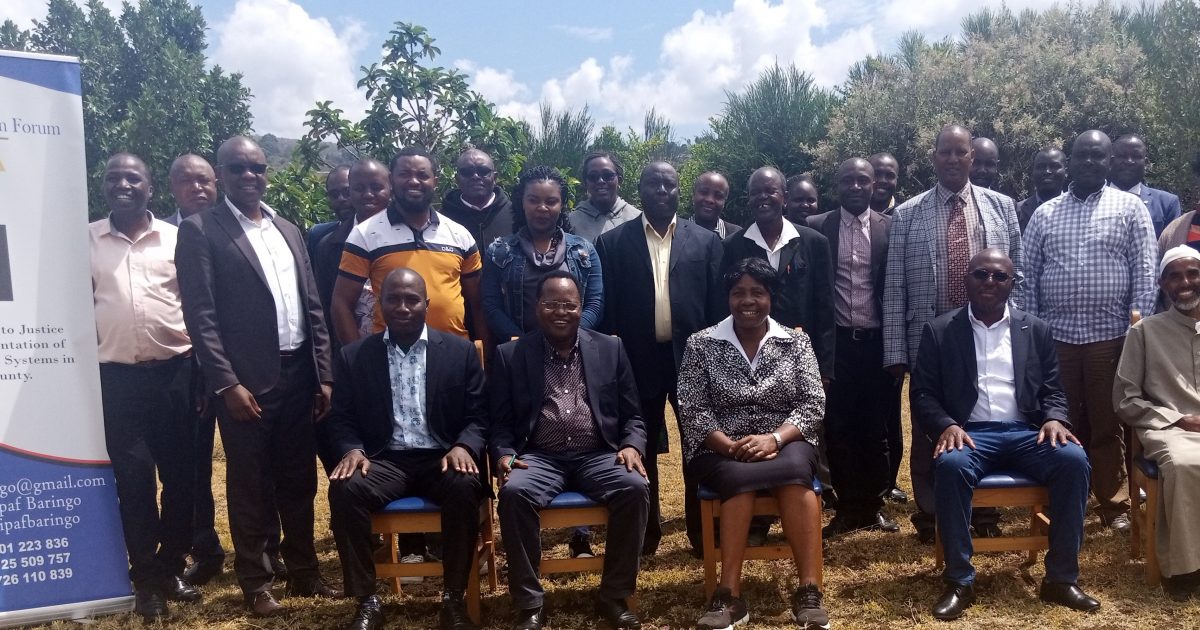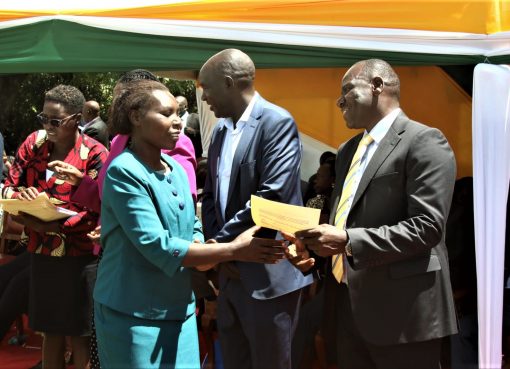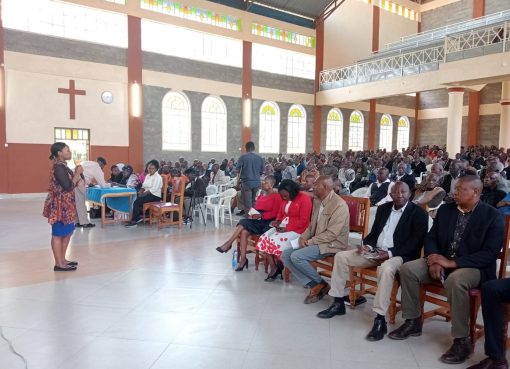High Court Judge, Joseph Sergon, has said the backlog of cases in court system has obligated the judiciary to integrate the Alternative Justice System (AJS) to help in administration of justice to several social issues.
Dr. Sergon was speaking Friday during a workshop for the Court Users Committee held at the Kabarnet Resort in Baringo Central Sub-county.
The Judge said 80 per cent of disputes were being solved through the AJS, hence the need to promote it.
“80 per cent of aggrieved parties do not end-up in court, hence the promotion of AJS, but we should keep in mind that the decisions of the AJS Committee should not violate the Constitution, repugnant to justice and morality and does not intrude upon the Bill of Rights,” Dr. Sergon explained.
He added that the AJS makes use of community-based approaches of arbitration and mediation and enhances linkages with the courts in order to enhance fulfilment of Article 48 (Access to Justice) and Article 50 (Fair hearing) of the Constitution of Kenya.
“The only impediment to the system is lack of training of judicial officers, including lawyers on how it works but a policy is available that they can refer to,” he added.
Speaking during the conference, Dr. Steve Ouma Akoth, the Vice Chairperson of the National Steering Committee for the Implementation of the Alternative Justice Systems Policy, said the AJS would help in transformation of people’s lives and eliminate factors that cause conflicts to ensure they live in peace and harmony as cases are solved locally.
“In its fulfillment the AJS will protect, respect and transform the society. The theory of change indicates that social transformation takes place through access to justice,” Dr. Akoth said.
Judith Wanjala, the Kabarnet Chief Magistrate, said more training was needed on AJS and lauded the system, saying the Alternative Dispute Resolution mechanism would help the courts deal with the backlog of cases and Baringo being a vast county, many residents could not access courts and police stations.
“Council of elders, chiefs, religious groups, women and youth will help residents attain alternative justice speedily,” Wanjala added.
Isaiah Biwott, the Executive Director of Citizen Participation Forum (CIPAF) and a human rights defender, said the AJS would help clear case backlog, citing that land disputes, criminal offenses and family issues were the major justice issues in the County and would be dealt with speedily.
The AJS system that is the blueprint of Chief Justice, Martha Koome, however, is not mandated to deal with all cases. Cases relating to violence against children, women and some criminal cases, will remain at the discretion of the courts in line with the agency principle.
AJS puts prominence on reconciling the parties and ensuring that delivery of justice does not expand the gap already formed by the dispute.
The Constitution of Kenya (2010) provides an all-encompassing guarantee on access to justice for all persons.
However, that access to justice has been hindered by high court fees, cultural beliefs, geographical barriers, insecurity, a case backlog and understaffing of the judiciary hence the need for an alternative mechanism.
The Constitution offers the use of alternative forms of dispute resolution for all people and the AJS Policy is a vital guide on its optimization.
By Caroline Cherono





